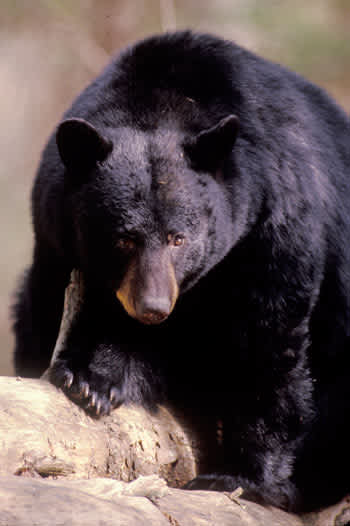Why Conservationists Are Opposing Maine’s Anti-hunting Ballot Proposal
OutdoorHub Reporters 09.17.14

For the past several months, Maine’s Department of Inland Fisheries and Wildlife (DIFW) has been promoting awareness of the upcoming bear referendum and what it would mean for the state’s bear hunt. This November voters will have the choice to vote yes on Question 1, which would ban the use of bait, hounds, and traps for bear hunting in the state. As the vote nears, the DIFW is stepping up its attempts to encourage residents to vote against the ban.
“The Department opposes Question 1 since if it passes, it would cripple the Department’s ability to control the bear population. That will lead to more nuisance bear complaints and increased threats to public safety. More bears will die from disease and starvation. Towns and property owners will face increased costs to deal with nuisance bears,” the DIFW said in a recent press release.
Popular support for the ban has been drummed up by animal rights groups who long decried the methods as cruel, unethical, and unsporting. Mainers for Fair Bear Hunting, which spearheaded the petition to put the issue on the November ballot, pointed out that Maine is the only state in the country to allow all three hunting practices. Wildlife officials say there is a good reason for Maine’s relatively liberal bear season. The state is currently home to an estimated 30,000 bears, making it host to one of the largest black bear populations in the Lower 48 states.
“Bear hunting with bait, dogs, and traps currently keeps bears from expanding into more populated areas of the state, it reduces the number of bears that die from disease and starvation, it decreases vehicle collisions and protects public safety,” the department stated.
In fact, data from the DIFW showed that 93 percent of all bears harvested since 1999 were either by baiting (79 percent) or the use of hounds (11 percent) and traps (three percent). The elimination of these hunting practices would greatly hinder the state’s ability to manage the bear population.

“The proponents of this referendum are presenting a skewed, overly emotional view of bear hunting, based on very little actual first-hand experience while ignoring the real science here in Maine,” said wildlife biologist Deborah Perkins. “In my professional opinion many bears will suffer cruel deaths if we lose these methods. Too many bears in a given habitat will result in starvation and human conflict. Bears will risk foraging for food in neighborhoods and other areas where humans live, work, and play.
“Nuisance bears will be demonized, relocated, and killed due to the danger habituated bears pose to human safety. Mainers have no idea how fortunate we are to enjoy a large population of bears, while having very minimal bear-human conflicts. It’s no accident. Our state biologists have been carefully, scientifically managing this population for decades. I respectfully urge voters to consider voting No on Question 1. ”
Wildlife officials are already reporting an increase in black bear complaints and have issued a warning to residents earlier this year regarding bear sightings. One thing that both the DIFW and activists seem to agree on is that the bear population is rising at an alarming rate—30 percent over the past decade. The DIFW points to this as further support for a strong management hunt, while opponents say it is a sign that bear baiting and associated methods are not effective at controlling bear numbers. Biologists say that an annual harvest of 3,500 to 4,500 bears is needed to stabilize the population, but hunters last year took less than 3,000. Despite activists describing the use of bait, hounds, and traps as methods for a lazy and “easy trophy kill,” DIFW officials say only one out of four hunters are successful. The average time it takes to harvest one bear is 15 days.
“Most of the management actions in the management system depend heavily on the ability of hunters to harvest bears over bait, with the aid of dogs, or to trap bears—without those tools, it will be impossible for hunters to harvest enough bears to meet the bear population objectives established by the public,” said George Matula, an associate professor of wildlife biology at Unity College. “Unlike the more open habitats of [the Western United States], Maine’s dense forested habitat makes it impossible to harvest enough bears to meet the state’s management goals and objectives without the use of bait, hounds, or traps.”
You can see a video further detailing its opposition to Question 1 below. The referendum will appear on the Maine general election ballot on November 4.

